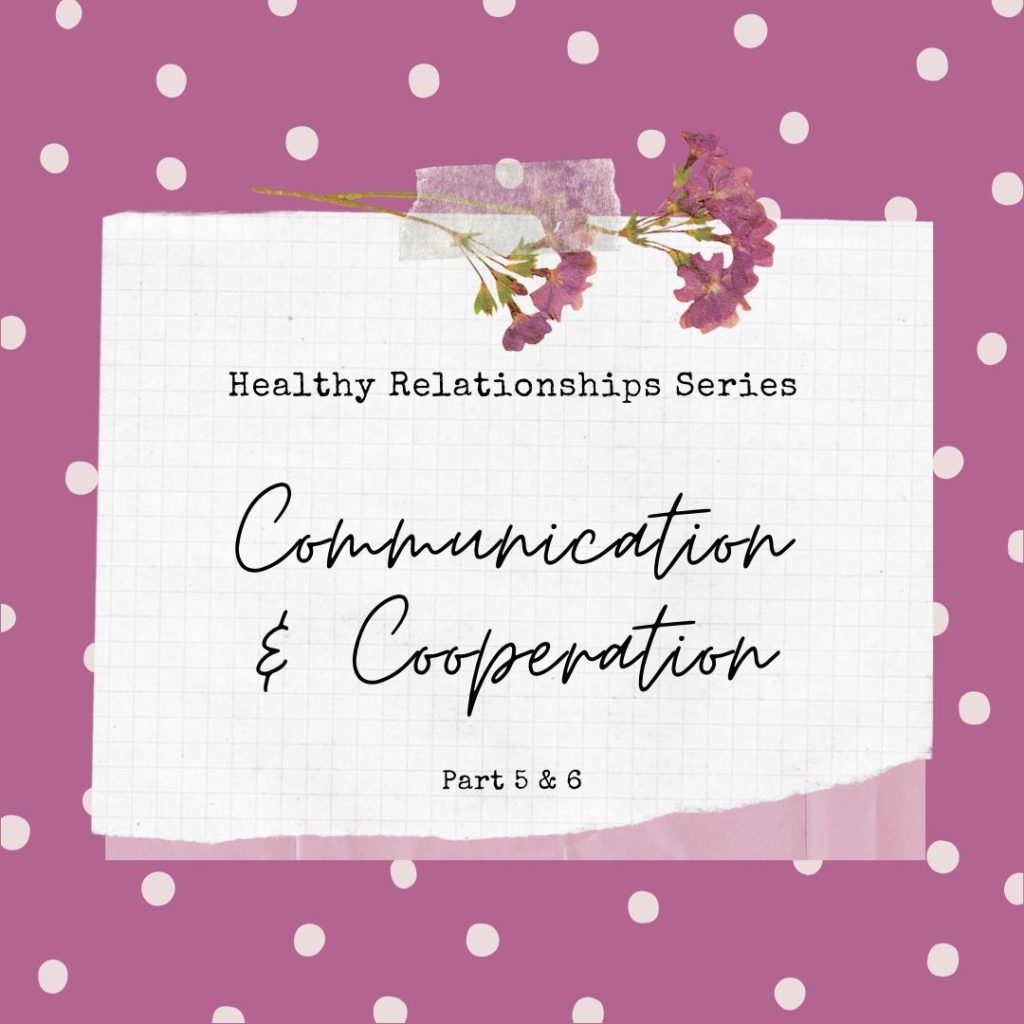Communication & Cooperation
by Danielle Melton, MA, LCPC

Communication is one of the most well-known aspects of a healthy relationship. We all know that healthy communication is necessary to having the relationships we desire … so why is it still so hard?
Filters
Communication is difficult because every person is different from the next. We all have our own hopes, dreams, histories, and ways of seeing the world. We are different ages. We grew up in different homes. We may com from different cultural backgrounds. These are the things that make up our filters.
We each see the world through a filter composed of our lived experiences.
Every time you hear a message from someone, that message first makes its way through your filters.
Every time you send a message to someone, that message also passes through their filters.
This can create confusion, miscommunication, and sometimes even conflict. The way you can help increase your healthy communication is by using clarification.
Clarification
“I heard you say…”
“Did you mean….”
“You want…”
Just try it! The next time you are in conversation try clarifying what you hear the other person say. See how it works for you.
A couple other tips:
Limit the “you” messages.
“You are so messy.”
“You always make us late and I can’t stand it.”
“You” messages put the other person on guard. The “you” message says, “I’m in pain and you did it to me.”
These messages put others into defensiveness and can come across like accusations. Even if your partner did something wrong or hurtful, it is still helpful to craft a message they can hear more easily.
-Instead of “You are so messy. Try, “When the kitchen is a mess I feel stressed out.”
-Instead of “You always make us late and I can’t stand it.” Try, “I feel embarrassed when we arrive late to events.”
Cooperation
Cooperation and open, health communication really go hand in hand. With cooperation, each person treats the other with mutual respect and as an equal. Cooperation is especially helpful during times of disagreement or conflict.
One way to increase cooperation in your relationship is to try taking the other person’s point of view.
Imagine yourself in their shoes. What would it be like to be them in the current situation?
Taking the other’s point of view increases empathy and compassion, and can help you resolve a conflict much more quickly than defensiveness or self-interest.
We hope that our Relationship Series was helpful to you. If you are interested in having more support navigating relationships, be sure to visit our website, www.gwhope.org for additional information that can help you.
